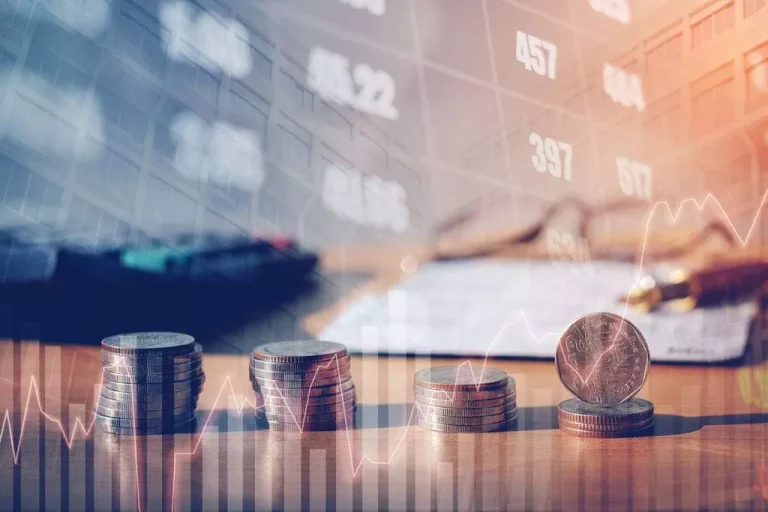In this way, they provide necessary liquidity in an economy and help in improving trade and the volume of securities. Most foreign exchange trading firms are market makers, as are many banks. The foreign exchange market maker both buys foreign currency from clients and then sells it to other clients. They derive income from the price differentials on such trades, as well as for the service of providing liquidity, reducing transaction costs, and facilitating trade. For all of these services, investors usually pay higher commissions for their trades.

Many brokers can also offer advice on which stocks, mutual funds, and other securities to buy. And with the availability of online trading platforms, many investors can initiate transactions with little or no contact with their personal broker. Although there are various types of brokers, they can be broken down into two categories.
- They either sell from this when they receive a buy order, or they add to it when they receive an instruction to sell.
- A market maker seeks to profit off of the difference in the bid-ask spread and provides liquidity to financial markets.
- The exchange, which is operated by Deutsche Börse AG, calls its market makers designated sponsors.
This stands in contrast to the traditional route of going through a stock brokerage, where the brokerage itself holds the shares for the investor. Market orders provide market makers with a convenient way to overcharge retail investors – so, how can one avoid this form of manipulation? If a market maker owns a position in a stock and posts an order to buy thousands of shares in crypto market making that stock, that can create the impression of buying pressure and increased investor interest. This, in turn, can easily be interpreted as a sign that the stock’s price is going to rise. While there is no corruption with market makers in the U.S., because of strict regulations, there are still a couple of less-than-savory practices that are common and slightly exploitative.
In addition, sellers and buyers will always find their potential counterparts in the stock market whenever necessary. This ensures financial markets operate smoothly irrespective of the order size. When market makers receive a lead about sellers with https://www.xcritical.in/ a fixed bid, the market makers communicate as buyers to purchase those shares. After owning those shares, market makers set an asking price based on market fluctuations. Their profit lies in the difference between those shares’ cost and ask price.
Stocks, securities, and other assets need markets to move from sellers to buyers. And to ensure market liquidity when, for example, the offer exceeds demand, an intermediary is necessary. That’s where a market maker steps in, ready to buy or sell stocks or securities at any time and generate income from the price difference. As they create both supply and demand to ensure that trades progress smoothly, they’re also called liquidity providers.
Along with this, market makers can make use of stock purchases and trading options to profit from capital appreciation. To cap it all off, some market makers also operate as brokerages – but we will discuss this later. Market makers sell shares to new buyers at a different ask price, usually higher than the bid price. The difference between ask and bid prices is the profit for market makers.
They hold an inventory of securities or even physical currencies for trade. In an effort to combat the risks of trading, market makers are given the benefit of a two-way quote. Consequently, they offer to buy and sell prices together in a quote. The profit from a difference in the prices is a reward they earn for taking the risk. The value of stocks, shares and any dividend income may fall as well as rise and is not guaranteed, so you may get back less than you invested.
As a retail trader, you can’t swap trades with your trading buddies like that. But you can do your best to stay on top of the latest news as soon as it breaks. Despite MMs’ best efforts, sometimes assets lose value in the blink of an eye. This means they pay brokerages to direct customer orders their way. They have the authority and expertise to buy securities on an investor’s behalf. Total market capitalization of domestic companies listed in the United States.
Without market makers, however, trading would slow down significantly. It would take considerably longer for buyers and sellers to be matched with one another. This would reduce liquidity, making it more difficult for you to enter or exit positions and adding to the costs and risks of trading. Some types of market makers are known as “specialists.” A specialist is a type of market maker who operates on certain exchanges, including the New York Stock Exchange. Although their functions are similar, specialists focus more on facilitating trades among brokers directly on the floor of an exchange. A specialist is one type of market maker who often focuses on trading specific stocks.

Coming back to the topic of discussion, market makers also help reduce price volatility which leads to fair pricing of the assets. As mentioned above, the primary risk a market maker can face is a decline in the value of a security after it has been purchased from a seller and before it’s sold to a buyer. The higher the liquidity of an asset, the lower the transaction fees and hence the tighter the spread. Whereas slippage occurs when the bid/ask spread changes between the time an order is placed and the time a market-maker executes the order. Peer-to-peer-trading unfortunately often lacks liquidity, which is a measure for the efficiency of buying certain assets. Liquidity depends on factors such as spread, slippage and price recency (we will explain these terms a little bit later in this article).
Brokers are typically firms that facilitate the sale of an asset to a buyer or seller. Market makers are typically large investment firms or financial institutions that create liquidity in the market. A market maker is a trader whose primary job is to create liquidity in the market by buying and selling securities.
Because stock volumes are generally high, this allows market makers to make sure that orders are filled, but on the high-end of the price range. In reality, there’s nothing happening – the market maker is simply looking to drum up interest in order to make their principal trades more profitable. While this method of doing business isn’t quite exactly illegal, it is still disapproved of by regulatory bodies. The value of your investments can go down as well as up and you may get back less than you put in. Tax treatment depends on your individual circumstances and may be subject to future change.
Market makers are companies that improve the liquidity and trade volume of stocks on a given exchange. However, when working as market manipulators, they must follow specific laws set by the country’s regulators to operate legally. Usually, they work in groups to subsequently bring more buyers and sellers into the market. The market maker pockets the difference between these two prices when they complete a transaction. At 199p-200p, the shares are no longer in a state of supply and demand balance. To restore market equilibrium, a market maker will have to adjust the bid-ask spread to eliminate the gulf between the level of buyers and sellers.
Dejar una contestacion